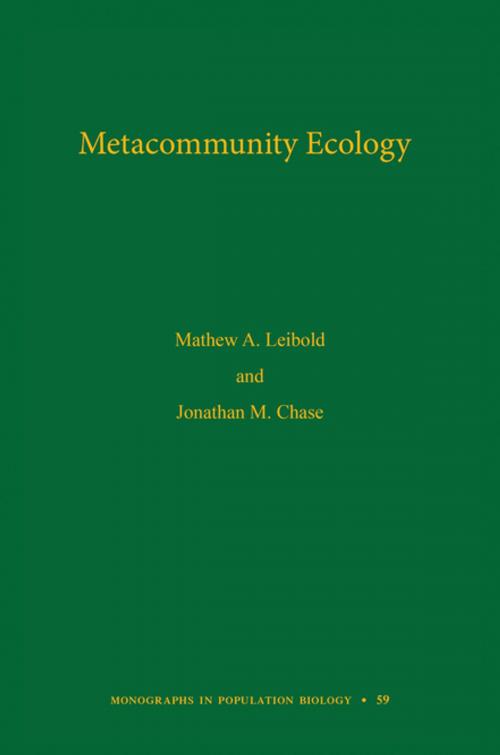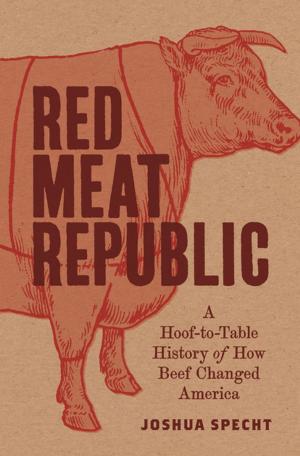Metacommunity Ecology, Volume 59
Nonfiction, Science & Nature, Science, Biological Sciences, Ecology, Biology| Author: | Mathew A. Leibold, Jonathan M. Chase | ISBN: | 9781400889068 |
| Publisher: | Princeton University Press | Publication: | December 18, 2017 |
| Imprint: | Princeton University Press | Language: | English |
| Author: | Mathew A. Leibold, Jonathan M. Chase |
| ISBN: | 9781400889068 |
| Publisher: | Princeton University Press |
| Publication: | December 18, 2017 |
| Imprint: | Princeton University Press |
| Language: | English |
Metacommunity ecology links smaller-scale processes that have been the provenance of population and community ecology—such as birth-death processes, species interactions, selection, and stochasticity—with larger-scale issues such as dispersal and habitat heterogeneity. Until now, the field has focused on evaluating the relative importance of distinct processes, with niche-based environmental sorting on one side and neutral-based ecological drift and dispersal limitation on the other. This book moves beyond these artificial categorizations, showing how environmental sorting, dispersal, ecological drift, and other processes influence metacommunity structure simultaneously.
Mathew Leibold and Jonathan Chase argue that the relative importance of these processes depends on the characteristics of the organisms, the strengths and types of their interactions, the degree of habitat heterogeneity, the rates of dispersal, and the scale at which the system is observed. Using this synthetic perspective, they explore metacommunity patterns in time and space, including patterns of coexistence, distribution, and diversity. Leibold and Chase demonstrate how these processes and patterns are altered by micro- and macroevolution, traits and phylogenetic relationships, and food web interactions. They then use this scale-explicit perspective to illustrate how metacommunity processes are essential for understanding macroecological and biogeographical patterns as well as ecosystem-level processes.
Moving seamlessly across scales and subdisciplines, Metacommunity Ecology is an invaluable reference, one that offers a more integrated approach to ecological patterns and processes.
Metacommunity ecology links smaller-scale processes that have been the provenance of population and community ecology—such as birth-death processes, species interactions, selection, and stochasticity—with larger-scale issues such as dispersal and habitat heterogeneity. Until now, the field has focused on evaluating the relative importance of distinct processes, with niche-based environmental sorting on one side and neutral-based ecological drift and dispersal limitation on the other. This book moves beyond these artificial categorizations, showing how environmental sorting, dispersal, ecological drift, and other processes influence metacommunity structure simultaneously.
Mathew Leibold and Jonathan Chase argue that the relative importance of these processes depends on the characteristics of the organisms, the strengths and types of their interactions, the degree of habitat heterogeneity, the rates of dispersal, and the scale at which the system is observed. Using this synthetic perspective, they explore metacommunity patterns in time and space, including patterns of coexistence, distribution, and diversity. Leibold and Chase demonstrate how these processes and patterns are altered by micro- and macroevolution, traits and phylogenetic relationships, and food web interactions. They then use this scale-explicit perspective to illustrate how metacommunity processes are essential for understanding macroecological and biogeographical patterns as well as ecosystem-level processes.
Moving seamlessly across scales and subdisciplines, Metacommunity Ecology is an invaluable reference, one that offers a more integrated approach to ecological patterns and processes.















